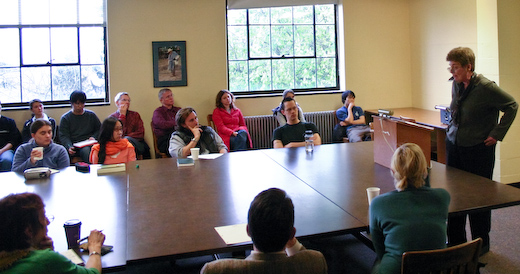The notion of "quality," or suzhi, has become a cultural determination of the value form of labor in China's economic reforms, marking the divide between manual and mental labor. As a specifically Chinese articulation of the concept of human capital, suzhi must be understood within the frame of the global economy. However, its workings in the context of China offers a critical perspective on new conceptions of value circulating more globally as the "immaterial labor" of the "knowledge economy."

Ann Anagnost is Associate Professor of Anthropology at the University of Washington. She is the author of National Past-times: Narrative, Representation, and Power in Modern China (1997). Her presentation is drawn from her current project entitled Embodiments of Value in China's Economic Reform (forthcoming).
e-Flyer (PDF)


Ann Anagnost is Associate Professor of Anthropology at the University of Washington. She is the author of National Past-times: Narrative, Representation, and Power in Modern China (1997). Her presentation is drawn from her current project entitled Embodiments of Value in China's Economic Reform (forthcoming).
e-Flyer (PDF)

Leave a comment